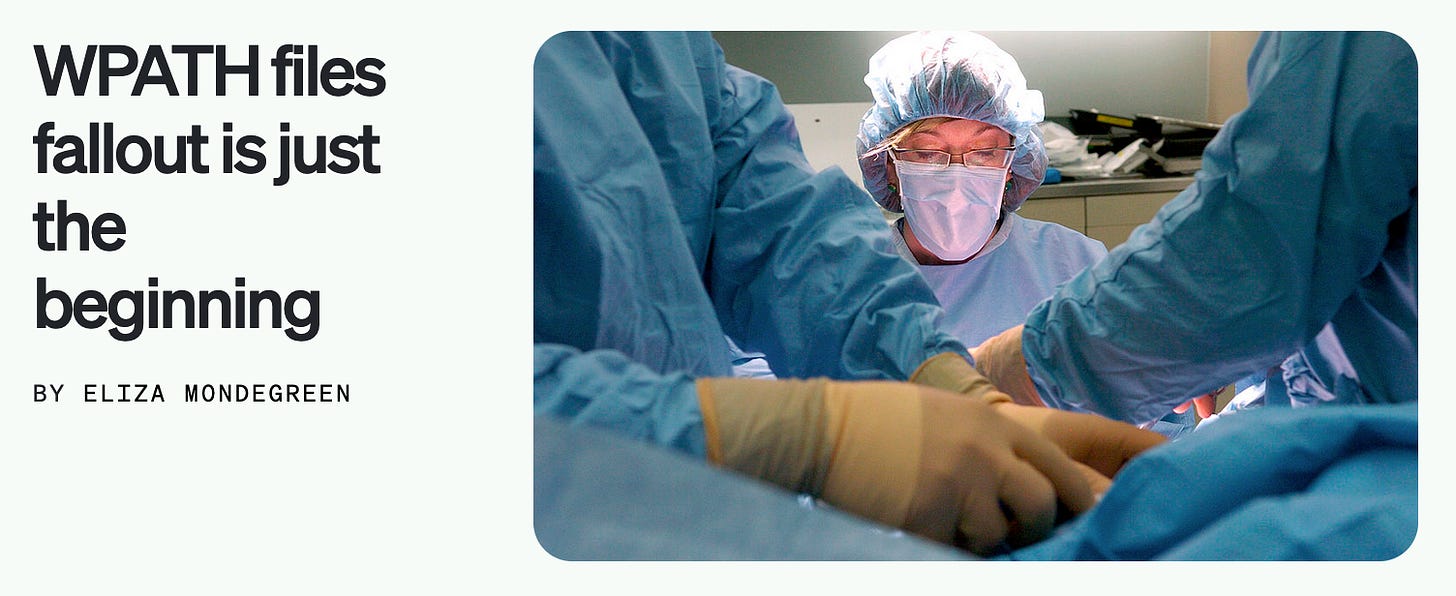"Gender, like genitalia, is represented by diversity": WPATH's bizarre response to leaked messages
How does a professional organisation respond when a scandal breaks? Some issue smooth denials, leaving not so much as a seam for critics to pick at. Some finger bad apples. Others dare to admit faults and strive for transparency. The World Professional Association for Transgender Health (WPATH) took a rather different tack, issuing a bizarre statement this week in response to the publication of files exposing malpractice at the organisation.
WPATH President Dr Marci Bowers begins by marking the territory (“We are the professionals who best know…”) and appealing to authority (“widely endorsed by major medical organizations around the world”), before moving on to distort the conflict (the WPATH files are not, in fact, a bid to “de-legitimize” anyone’s identity). The stray comment about the shape of the world attempts to paint critics as anti-science, the equivalent of flat-earthers.
Bowers then asserts that “gender, like genitalia, is represented by diversity”, which sounds like the sort of meaningless twaddle Google Gemini cooks up. Bowers wraps up by twisting the stakes (patients “deserv[e] healthcare”) and minimising the scope of the organisation’s work (“small percentage of the population… [that] will never be a threat to the global gender binary”), a plea in effect: leave us alone!
The statement is nonsensical because the brief was impossible. WPATH needed to speak simultaneously to two entirely different audiences — the world outside and the organisation’s own membership — who needed to hear entirely different things.
For decades, the field of gender medicine has insulated itself from scrutiny and criticism. The public and policymakers were never supposed to get a glimpse into the inner workings of the field. They were supposed to defer to the “experts” and not look too closely at what they were being asked to support.
The WPATH files look much too closely, shining a spotlight on risks and uncertainties and harms so specific that they will be difficult to forget: patients with tumours, patients whose ages and developmental delays and serious psychiatric conditions mean they could never meaningfully consent to the interventions they underwent, patients who regret being sterilised because they now want children. These files provide fuel for policymakers seeking to regulate youth gender transition and patients trying to sue. The fallout is just beginning.
WPATH’s members, on the other hand, need to see this brutal exposé as a devious plot against a noble cause. WPATH has been preparing its membership for just such a faith challenge for years, instilling an embattled mentality. For years, the organisation’s conferences and events have promoted the narrative that gender clinicians are a misunderstood and persecuted vanguard within medicine who will be vindicated in the future but must suffer heinous accusations in the here and now.





The comment about not being a “threat to the global gender binary” is infuriating. Nobody cares about the “gender binary.” We care about people being irreversibly harmed. Doctors are supposed to care about that too. Instead they have blinded themselves to the needs of their individual patients in service of a political goal. Whenever that has happened in human history the outcome has been terrible.
"Gender, like genitalia, is represented by diversity." If one's genitalia are, supposedly, irrelevant in determining one's gender, why such emphasis on them? Or specifically, having cosmetic operations to change them?